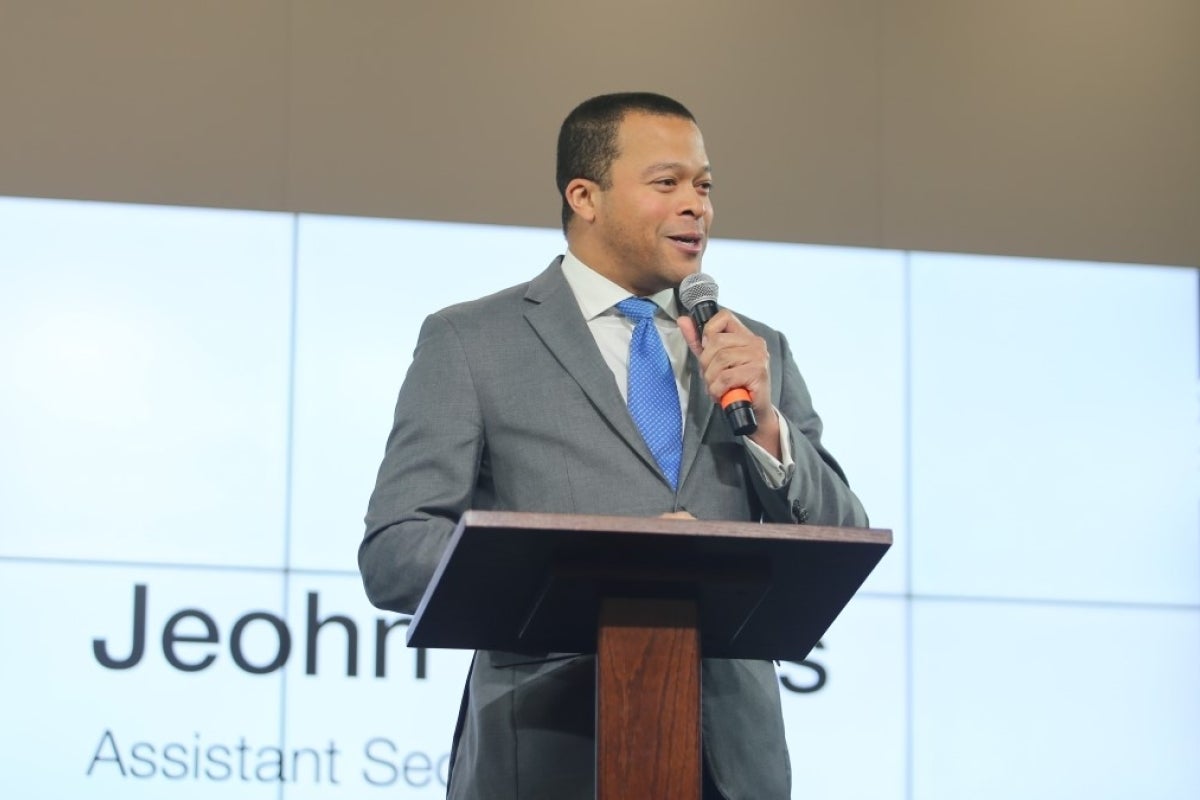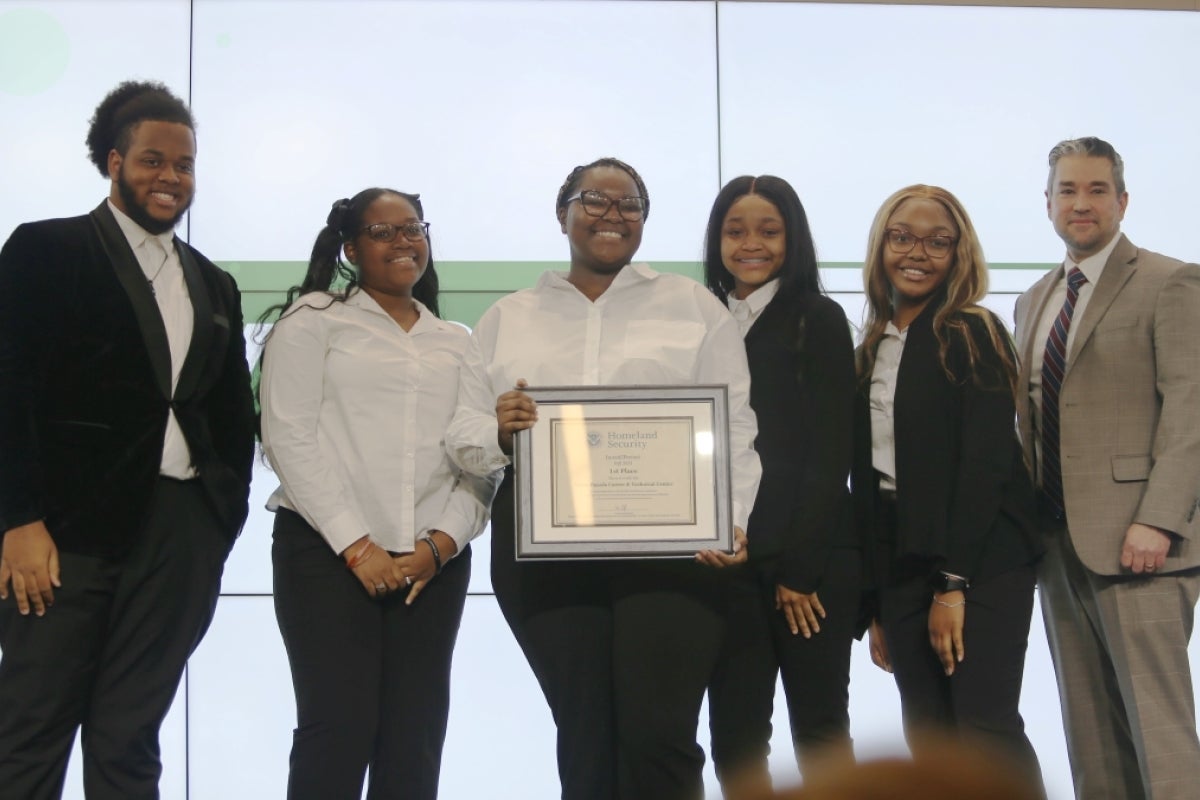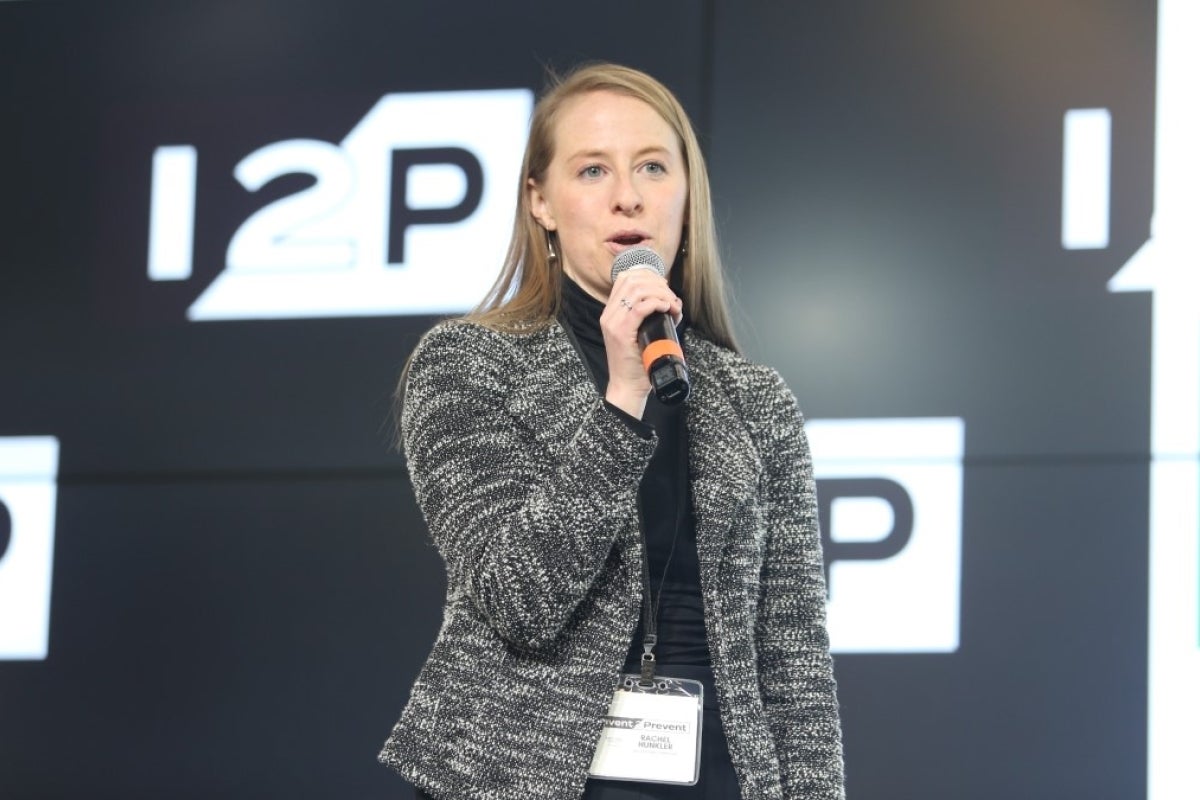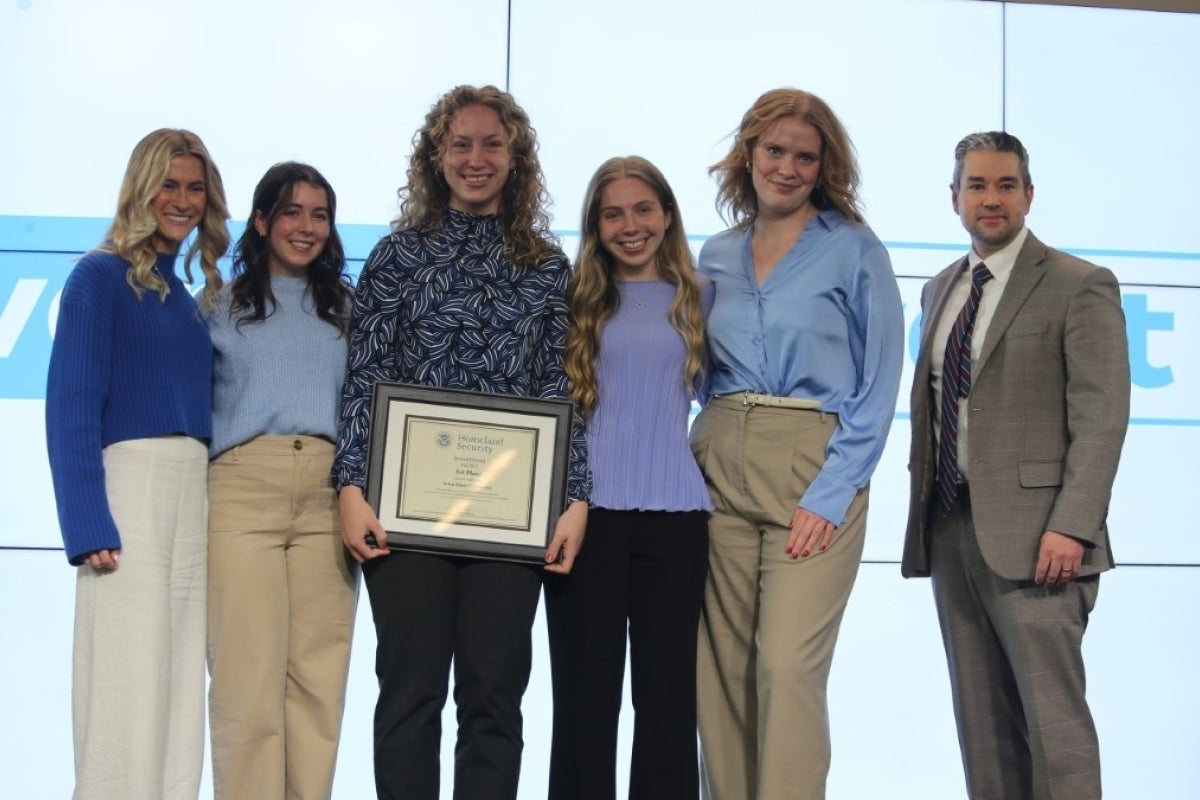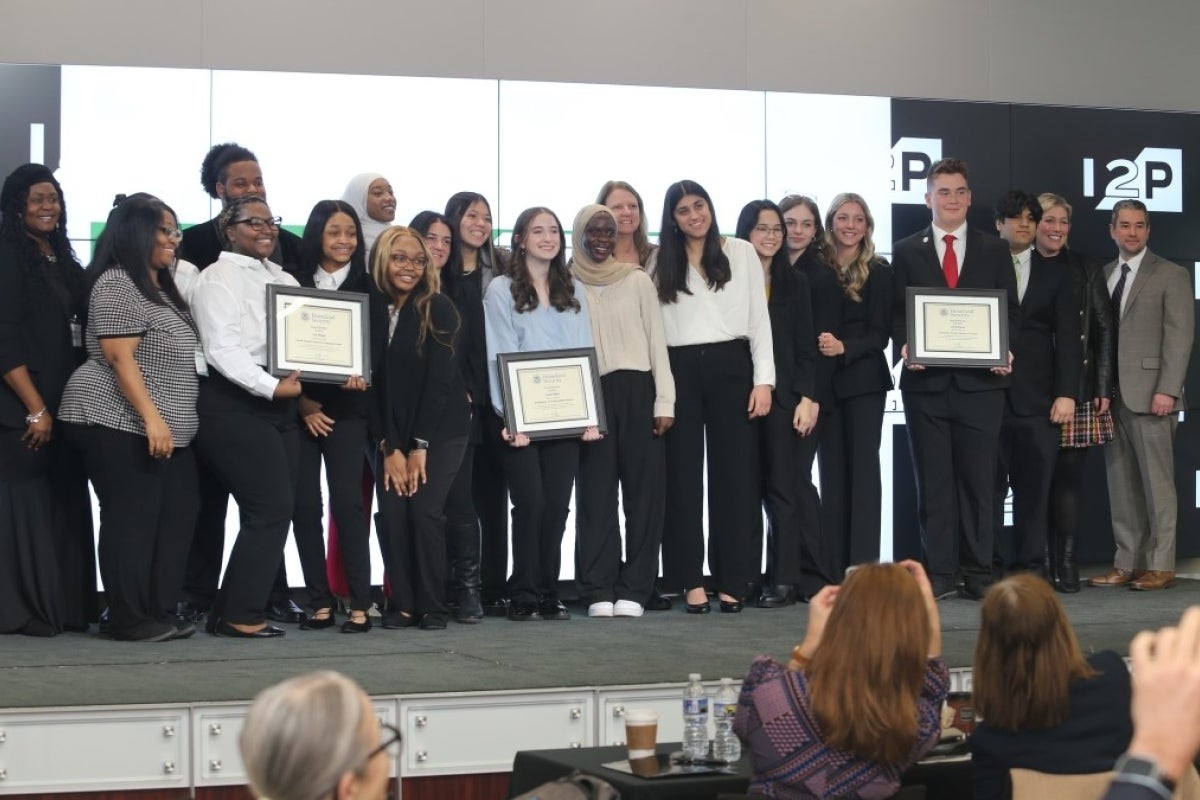Students address acts of targeted violence, terrorism in annual Invent2Prevent pitch competition

Bill Braniff (far left), director for the Department of Homeland Security’s Center for Prevention Programs and Partnerships, and students from the Middlebury Institute for International Studies in Monterey, California; the University of Nebraska–Lincoln; and Iowa State University in Ames pose with their awards. Photo by Hager Sharp
In today's increasingly globalized world, targeted violence and terrorism pose an increasing risk to the peace and safety of even the youngest members of society.
To address this growing concern, the McCain Institute at Arizona State University partnered with EdVenture Partners and Credence on Wednesday, Jan. 24, to host the Invent2Prevent pitch competition, sponsored by the U.S. Department of Homeland Security’s Center for Prevention Programs and Partnerships (CP3) in Washington, D.C.
Invent2Prevent is a program that aims to empower high school and college students to prevent incidents of targeted violence and terrorism by creating interventions. The Jan. 24 competition consisted of two sets of presentations, with high school students pitching their intervention ideas in the morning, followed by the college students in the afternoon. After each presentation, a panel of judgesAlong with Stern, the panel of judges included John Wilder from CP3; Amanda Miller, deputy assistant secretary for higher education programs at the U.S. Department of Education; Andrea McDonald, the director of Safe and Supportive Schools at the American Psychological Association; and Peter Stewart, a former Invent2Prevent student. had 10 minutes to ask the teams questions.
Tony Sgro, founder and CEO of EdVenture Partners, kicked off the competition with introductory remarks, followed by a keynote address from Jessica Stern, senior fellow at the Harvard T.H. Chan School of Public Health and professor at the Pardee School of Global Studies at Boston University.
“Students who take Invent2Prevent classes learn things they will never forget,” said Stern, who served on the panel of judges. “Invent2Prevent helps students become professionals, but also good citizens, equipped to promote civility in a society that is suffering.”
The high school winners
The first-place, $5,000 award for the high school competition went to the team from North Panola Career and Technical Center in Como, Mississippi. They pitched Peer No Pressure, a mentoring program that provides community engagement activities for teenagers in middle and high school to encourage them to stand up to peer pressure and be kind to fellow students.
The second-place, $3,000 award went to the team from Burlington Township High School in Burlington, New Jersey. Their project, CTRL+ALT+DELETE Cyberbullying, aims to teach fifth graders about cyberbullying during a critical point in their educational careers through engaging classroom curriculum, as well as a website, digital game and parent resources.
The third-place, $1,000 award went to Thao, Pradeep, and Carolina of Louisiana Legislative Youth Advisory Council in Baton Rouge, Louisiana. Their project aims to teach kindergarteners about cultural differences through a children’s book about cultural holidays. The book is accompanied by a classroom curriculum, online resources and robust social media presence.
The collegiate winners
The team from Iowa State University and their initiative Mindspace took home the first-place prize, winning the largest award of $10,000. The goal of Mindspace is to provide mental health resources on Iowa State’s campus and reduce stigma around mental health to curtail violent outbursts from students, and perhaps even prevent campus shootings.
Second place and an award of $5,000 was presented to the Project Gravity team from the Middlebury Institute of International Studies at Monterey. Project Gravity is a unique combination of an AI chatbot and a tool kit designed to be used together to combat misinformation and empower bystanders to prevent members of their community from being drawn in by conspiracy theories.
Third place and an award of $3,000 went to students from University of Nebraska–Lincoln, whose initiative, Safe Space Nebraska, aimed to close the knowledge gap around active shooter protocols on their campus.
Growing prevention education
Bill Braniff, director of the National Consortium for the Study of Terrorism and Responses to Terrorism (START), congratulated the finalists and the teams from all participating institutions and reiterated how the Invent2Prevent competition challenges Americans to help educate the Department of Homeland Security on how to prevent targeted violence and terrorism.
“These students are part of a small but growing community of Americans who understand in their bones that targeted violence and terrorism are preventable acts of violence,” he said.
Honorable mentions went to teams from the University of Arizona, California State University San Marcos, Howard University, Southern University Law Center and the University of Central Oklahoma. Also recognized were four scholarship winners, five sustainment teams who had been successful in previous Invent2Prevent competitions and have continued their projects with funding from the McCain Institute, and two of the 2023 U.S. Department of Homeland Security’s Targeted Violence and Terrorism Prevention grantees.
For more information about Invent2Prevent, visit the McCain Institute website.
More Local, national and global affairs

Military program leaders learn about breadth of ASU's defense-focused initiatives
Arizona State University seeks to be the U.S. military’s top partner in strategic learning and innovation. To advance this vision, the Office for Veteran and Military Academic Engagement hosted…

Expert discusses America's place in outer space with ASU students
If you asked Esther Brimmer about what security issue the United States should focus on next, she might say the moon. In fact, that’s exactly what she recently told a student at an event hosted by…
Arizona nonprofits eager for guidance to address changing federal policies, ASU report finds
In the weeks following a series of executive orders reducing federal funding, including grants to nonprofits, Arizona State University’s Lodestar Center for Philanthropy and Nonprofit Innovation…


